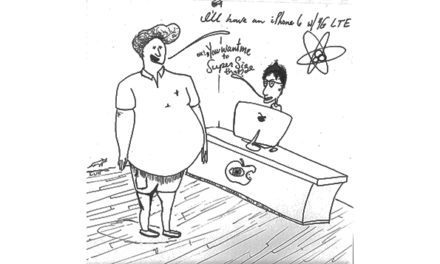On Dec. 5 and 6, the student body will vote on proposed amendments to the Honor Code. The changes, if ratified by a simple majority, will apply only to the College.
After reviewing the proposed changes to the Honor Code, the Editorial Board has voted to support the amendments, but we have concerns with the implementation of the voting process as well as the enactment of some of the amendments.
Firstly, the Editorial Board recommends that the Honor Council modify the current all-or-nothing voting system in which students must either accept or reject all of the the proposed amendments. The ballot should instead be presented on an amendment-by-amendment basis so that students might determine which individual proposals are in their best interest.
One of the most significant and necessary additions to the Honor Code is a clause forbidding the use of electronic devices during testing. If a student is seen using a cellphone or other prohibited electronic device during a test or exam, the professor may tell the student to put the device away, and the Honor Council would then later investigate the event. However, the clause also states that the student must be allowed to finish their assessment, ensuring that he or she will not be penalized with an incomplete exam grade if found innocent. By providing a clearly stated policy on the use of technology, the Honor Council is removing all ambiguity and preventing students from committing an offense of which they were previously unaware. With the prevalence of smartphones, smartwatches and the like, a clear policy banning the use of devices during testing is a necessity.
The proposed article three gives the Honor Council and dean the power to revoke a diploma after a student has graduated. While the Editorial Board recognizes the need to protect Emory’s academic reputation — and consequently, the credibility of an Emory degree — the finer details of the procedure warrant close inspection.
The procedure lacks a statute of limitations, enabling the College to revoke a degree regardless of the time elapsed since a student’s graduation. This could potentially allow the College to stifle free speech by graduates who should no longer be under Emory’s punitive jurisdiction, as well as conceal the College’s past failures in upholding a standard of academic integrity.
Though we believe the dean, upon the recommendation of the Honor Council, should have the power to revoke a student’s degree in highly publicized and extreme cases, the lack of specificity in the current provision does not protect students from being unfairly treated or targeted. The Honor Code should exist to protect students’ rights to a fair and timely disciplinary process and the integrity of their education while also holding the necessary power to protect the integrity of an Emory degree.
For future amendments to the Honor Code, the Editorial Board suggests a double jeopardy clause that protects students from being tried more than once for the same infraction, and encourages the Honor Council to establish a minimum number of votes from the student body required to ratify an amendment.
While merely voting “yes” or “no” on the collective amendments simplifies the voting process, the Editorial Board questions why students do not have the ability to vote on each individual clause. Just as the Editorial Board has different opinions concerning each amendment, so too, presumably, would students. With this amendment, since it requires a ratification in full, we believe that the benefits outweigh the drawbacks, and students should vote “yes”.
Fostering a culture of academic integrity that benefits both the College and students requires participation from every member of the Emory community. To prevent students from unintentionally violating the new Code and facing consequences for seemingly minor actions, we urge students and those who advise them — professors, PACE instructors, the Office of Undergraduate Education, Orientation Leaders, Residential Life staff — to familiarize themselves with the current Honor Code and its proposed changes, and emphasize its severity and importance. Most importantly, we remind administrators that preserving the University’s reputation should never be prioritized over the best interests of students and alumni.
Despite our criticisms, the Editorial Board believes the proposed changes to the Honor Code are overall necessary and practical. The amendments modernize the Honor Code, while increasing its efficiency and we urge students to vote in favor of the proposed changes.
The above editorial represents the majority opinion of the Wheel’s Editorial Board.
The Editorial Board is the official voice of the Emory Wheel and is editorially separate from the Wheel's board of editors.




